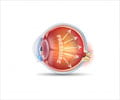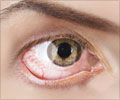A professor from the university of Tel Aviv has developed a novel laser device that can revolutionize the treatment of glaucoma.
A professor from the university of Tel Aviv has developed a novel laser device that can revolutionize the treatment of glaucoma.
Glaucoma, nicknamed the silent sight thief, is the second leading cause of blindness in the West.Prof. Ehud Assia, of Tel Aviv University’s Sackler School of Medicine has designed the device called the OTS134 that is expected to give most practicing eye surgeons the ability to master complex glaucoma surgery very quickly.
“Glaucoma is a serious problem that starts to cause nerve damage to people without them realizing that anything is happening to their eyesight, often before it is too late, “ says Prof. Assia, who is also the director of Ophthalmology at Meir Hospital in Israel, which treats thousands of glaucoma patients each year.
The most common surgical treatment in use today perforates the wall of the eye, often resulting in collapse of the eyeball, infection, cataract formation and other complications. A more effective and elegant approach, a specialty of Prof. Assia's, involves penetration of the eye wall to a depth of only about 95 percent, leaving a razor-thin layer intact. The difference between success and failure may amount to just a few microns.
This highly-specialized non-penetrating surgery, requiring years of rigorous training and great skill, is performed by only a small number of surgeons at leading international ophthalmology centers. But a small observation led Prof. Assia to think about a method that could make the procedure accessible to eye surgeons without the long and involved training.
“Several years ago I served as a consultant for a company that produces CO2 lasers, which are used for different kinds of cosmetic and skin surgery. Because it is a relatively strong type of laser, it was not a likely candidate for use on something as delicate as the eye. However, one of the CO2 laser's unique characteristics is that it does not function when it comes in contact with liquid. It occurred to me that this would be a perfect fit for non-penetrating surgery, because the moment the CO2 laser came in contact with the intra-ocular liquid, it would automatically shut off,” he said.
Advertisement
“There are drug treatments that can reduce the intra-ocular pressure, but that means life-long treatment involving two or three kinds of eye drops three times a day," says Prof. Assia.
Advertisement
Source-ANI
SRM/J










